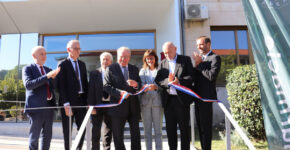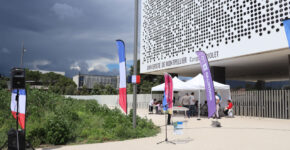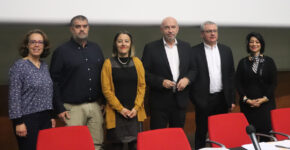Content type : Page
Le 3 février 2025, les membres du Conseil d'Administration ont approuvé la charte de l’Université de Montpellier relative à la liberté académique. Préambule : Principes fondamentaux1 La liberté d’expression est protégée, de manière générale, par les articles 11 de la Déclaration des Droits de l’Homme et du Citoyen de 1789, 10 de la Convention Européenne Des droits de l’Homme, 11 de la Charte des droits fondamentaux de l’Union européenne et 19 de la Déclaration Universelle des Droits de l’Homme de 1948. La liberté d’expression est également protégée, de manière spéciale, pour les enseignants-chercheurs, enseignants et chercheurs. Elle découle de la liberté académique, garantie d’indépendance, au cœur des fonctions des enseignants-chercheurs, enseignants et chercheurs, en vertu des articles L.952-2 du code de l’éducation et L.411-1 du code de la recherche. Aux termes de l’article L.952-2 du code de l’éducation, « les enseignants-chercheurs, les enseignants et les chercheurs jouissent d'une pleine indépendance et d'une entière liberté d'expression dans l'exercice de leurs fonctions d'enseignement et de leurs activités de recherche, sous les réserves que leur imposent, conformément aux traditions universitaires et aux dispositions du présent code, les principes de tolérance et d'objectivité. Les libertés académiques sont le gage de l'excellence de l'enseignement supérieur et de la recherche français. Elles s'exercent conformément au principe à caractère constitutionnel d'indépendance des enseignants-chercheurs. » La liberté académique est qualifiée de principe fondamental reconnu par les lois de la République, par le Conseil Constitutionnel2 et par le Conseil d’Etat3. Section 1 : Protection de la liberté académique par l’Université de Montpellier Article 1. La liberté académique s’entend comme « la liberté de penser et d’enseigner sous l’égide de l’État, mais en toute indépendance »4. Article 2. La liberté académique suppose un degré de protection élevé car l’expression des opinions des enseignants-chercheurs, enseignants et chercheurs, ainsi que leurs contributions aux débats et controverses scientifiques, participent de l’intérêt général. Article 3. L’Université de Montpellier est attachée à la liberté académique, dans son exercice et sa protection, individuelle et collective. Article 4. L’Université de Montpellier protège, de manière générale, les enseignants-chercheurs, enseignants et chercheurs dont elle est l’employeur, dans l’exercice de leur liberté académique, par l’adoption de mesures proportionnées dans le cas où cela serait nécessaire. Article 5. L’Université de Montpellier protège, en particulier, les enseignants-chercheurs, enseignants et chercheurs dont elle est l’employeur, lorsqu’ils sont mis en cause dans des « procédures-bâillons »5, par l’octroi de la protection fonctionnelle en application des articles L.134-4 et L.134-5 du code général de la fonction publique, lorsque les conditions de ces textes sont réunies. Article 6. L’Université de Montpellier protège les enseignants-chercheurs, enseignants et chercheurs dont elle est l’employeur, lorsqu’ils sont lanceurs d’alerte, c’est-à-dire s’ils répondent aux conditions posées par la loi n°2016-1691 du 9 décembre 2016 relative à la transparence, à la lutte contre la corruption et à la modernisation de la vie économique et par la loi n°2022-401 du 21 mars 2022 visant à améliorer la protection des lanceurs d'alerte. Section 2 : Conditions d’exercice de la liberté académique par les enseignants-chercheurs, enseignants et chercheurs Article 7. La liberté académique garantit pour les enseignants-chercheurs, enseignants et chercheurs, leurs possibilités de libre développement scientifique, créateur et critique, dans les domaines de la recherche et de l’enseignement. Article 8. La liberté académique s’entend, du point de vue de la recherche, comme la liberté de mener des travaux scientifiques, la liberté de publication des résultats de la recherche, la liberté de diffusion de la culture scientifique, la liberté de valorisation de la recherche, la liberté d’expression publique dans le cadre académique. Article 9. La liberté académique comprend également la liberté pédagogique et d’enseignement et s’entend comme la liberté dans le choix des supports, méthodes et pratiques pédagogiques, dans le respect des normes et usages en vigueur. Article 10. La liberté académique signifie que la conduite d’activités d’enseignement et de recherche par les enseignants-chercheurs, enseignants et chercheurs, est réalisée librement et sans menace ou pression, de source publique ou privée, exercée sous quelque forme que ce soit. Article 11. La liberté académique recouvre le droit pour les enseignants-chercheurs, enseignants et chercheurs, de choisir de travailler librement sur des questions qui leur semblent pertinentes, dans le respect des normes et usages en vigueur, afin de permettre la diffusion de l’information scientifique, de la culture et des savoirs. Article 12. L’exercice de la liberté académique oblige l’enseignant-chercheur, l’enseignant et le chercheur à adopter une démarche éthique et responsable dans toutes les dimensions de son activité (notamment recherche, pédagogie, diffusion de la culture scientifique). Article 13. L’exercice de la liberté académique, en tant que liberté d’exprimer une « croyance, opinion ou position théorique exprimée d’une manière académique appropriée »6, impose à l’enseignant-chercheur, à l’enseignant et au chercheur, le respect des principes de réserve, de tolérance et d’objectivité. Ainsi, l’exercice de la liberté académique ne signifie pas qu’ils peuvent tenir tout propos, notamment en diffusant sciemment des contre-vérités ou des éléments inexacts ou erronés, au risque de nuire à l’image et à la réputation de l’institution à laquelle ils appartiennent. Dans ce dernier cas, ils ne peuvent pas bénéficier de la protection fonctionnelle et s’exposent à des poursuites disciplinaires, voire à des poursuites judiciaires. Article 14. L’exercice de la liberté académique n’exclut pas, pour l’enseignant-chercheur, l’enseignant et le chercheur, le respect de l’obligation de neutralité dans les conditions prévues, pour l’agent public, par l’article L.121-2 du code général de la fonction publique, dans ses activités qui ne relèvent pas de la pédagogie et de la recherche (notamment fonctions administratives, procédures de recrutement). Article 15. En vertu de la Recommandation de l’UNESCO en date de 1997 concernant la condition du personnel enseignant de l’enseignement supérieur et de la Charte nationale de déontologie des métiers de la recherche, les enseignants-chercheurs, enseignants et chercheurs dont l’Université de Montpellier est l’employeur, qui s’expriment publiquement, dans le cadre de leurs activités pédagogiques ou de recherche, quel que soit le support de communication, y compris dans les médias et sur les réseaux sociaux, doivent réfléchir, de manière appropriée et circonstanciée : à la manière de se présenter sans induire le public en erreur ; à préciser s’ils s’expriment au nom de l’Université de Montpellier ou à titre personnel ; à préciser s’ils s’expriment dans le cadre de leur expertise et spécialité professionnelles ; à préciser qu’ils s’expriment à titre personnel et non en tant que personnels de l’Université de Montpellier si les propos n’entrent pas dans le cadre de leur expertise et spécialité professionnelles ; à déclarer d’éventuels liens ou conflits d’intérêts ; à mettre leur position et leur opinion en perspective avec d’autres opinions, convergentes ou contraires, afin de garantir l’objectivité du débat scientifique et du savoir (en application des articles L.952-2 et L.141-6 du code de l’éducation) ; à s’abstenir de tenir des propos à caractère d’injure ou de diffamation, entre collègues ou vis-à-vis de personnalités extérieures à l’Université de Montpellier ; à respecter le cadre légal relatif à la liberté d’expression, applicable à tous les citoyens, pour les propos diffusés à titre personnel en dehors du ou des domaines de compétences et d’expertise professionnelle. En effet, ces propos ne peuvent être couverts par la liberté d’expression académique.















